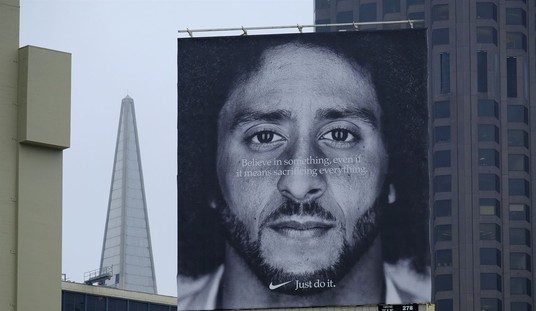Yesterday I started to delve into the Dennis Hastert case, paying particular attention to the specific crimes with which the former Speaker is being charged. But even after I finished writing about it and reading some of the comments here, I wasn’t very happy with my conclusions. There’s something very unsettling about the entire case (leaving out the obvious, horrible alleged child rape parts of it) but I felt that I wasn’t quite able to put my finger on it. Today I found someone who has done a better job of wrestling those questions to the ground and it was Connor Friedersdorf at the Atlantic. He poses a few questions which capture the essence of why this case seems so entirely wrong from a government overreach perspective.
It isn’t illegal to withdraw money from the bank, nor to compensate someone in recognition of past harms, nor to be the victim of a blackmail scheme. So why should it be a crime to hide those actions from the U.S. government? The alarming aspect of this case is the fact that an American is ultimately being prosecuted for the crime of evading federal government surveillance.
That has implications for all of us…
Again, the payments weren’t illegal. But as it turns out, structuring financial transactions “to evade currency transaction reporting requirements” is a violation of federal law.
Recognizing that Hastert is probably one of the least sympathetic figures in the news these days – aside from terrorists and mass shooting suspects – Connor helps us put this question in easier to digest form by applying the scenario to someone less sinister.
Imagine that a documentary filmmaker like Laura Poitras, whose films are critical of government surveillance, is buying a used video camera for $12,000. Vaguely knowing that a report to the federal government is generated for withdrawals of $10,000 or more, she thinks to herself, “What with my films criticizing NSA surveillance, I don’t want to invite any extra scrutiny—out of an abundance of caution, or maybe even paranoia, I’m gonna take out $9,000 today and $3,000 tomorrow. The last thing I need is to give someone a pretext to hassle me.”*
That would be illegal, even though in this hypothetical she has committed no crime and is motivated, like many people, by a simple aversion to being monitored.
Let’s toss in one more hypothetical from Friedersdorf just to drive the point home.
What if the government installed surveillance cameras on various streets in a municipality and then made it a crime to walk along a route that skirted those cameras?
That’s it in a nutshell. (And I only wish I’d summoned up the same clarity of thought to frame the issue that way.) We are a nation of laws and we don’t support people breaking them… and that includes the tax laws. But if you’re not actually breaking any of those laws, what are you really guilty of if you intentionally obfuscate your activities or hide yourself from the prying eyes of Uncle Sam? I’m failing to see how that is validly held to be a crime under our constitution.
The $10K transaction reporting requirement is controversial and Connor goes into it in detail, but I’m not sure that’s where we pin the blame here. After all, it’s not the job of the government to make it easier for you to commit a crime, and unusually large cash transactions – while not illegal in and of themselves – frequently do take place in conjunction with actual crimes. Making the banks report such account activity is not the same as charging someone with a crime, but rather is simply a hint of where prosecutors might want to look. After all, we don’t charge bank robbers with failing to leave a sufficiently clear trail of breadcrumbs back to their hideout. The problem arises with what they typically do with that information and the additional layers of laws which are piled on top of the process which follows.
If you are not providing testimony under oath in a court of law, why is it illegal to lie to investigators absent some other crime? I suppose exceptions could be made for things like providing a fake ID or forged insurance documents or something, but those are actually other crimes in their own right. But when the man from the IRS or the FBI or the Justice Department comes knocking on your door and asks you why you were doing this or that with your bank account, you should absolutely tell him that you’ve done nothing wrong and what you do with your money is your own damn business. If Hastert had done precisely that I assume he wouldn’t be in any trouble today on the “lying to authorities” front, though the “structured transaction” charge would stick. But he made up a story about stashing money at home because he didn’t trust the banks. That, as it turned out, was a lie. But the lie seems to be the only thing they have him on.. Is a lie that much worse than telling the investigator to go pound sand and refusing to cooperate?
I think the camera question that Connor poses is the one that really got me. For the record, I’m not opposed to there being cameras covering public spaces and making such footage available to law enforcement (with a warrant) as part of their investigation into an actual crime. But if you scope out where all the cameras are and purposely walk on paths which avoid them every day while not breaking any laws, how on Earth could they consider prosecuting you? Apparently under the current theory of government practices, they just might be able to. And yes… that’s disturbing.








Join the conversation as a VIP Member